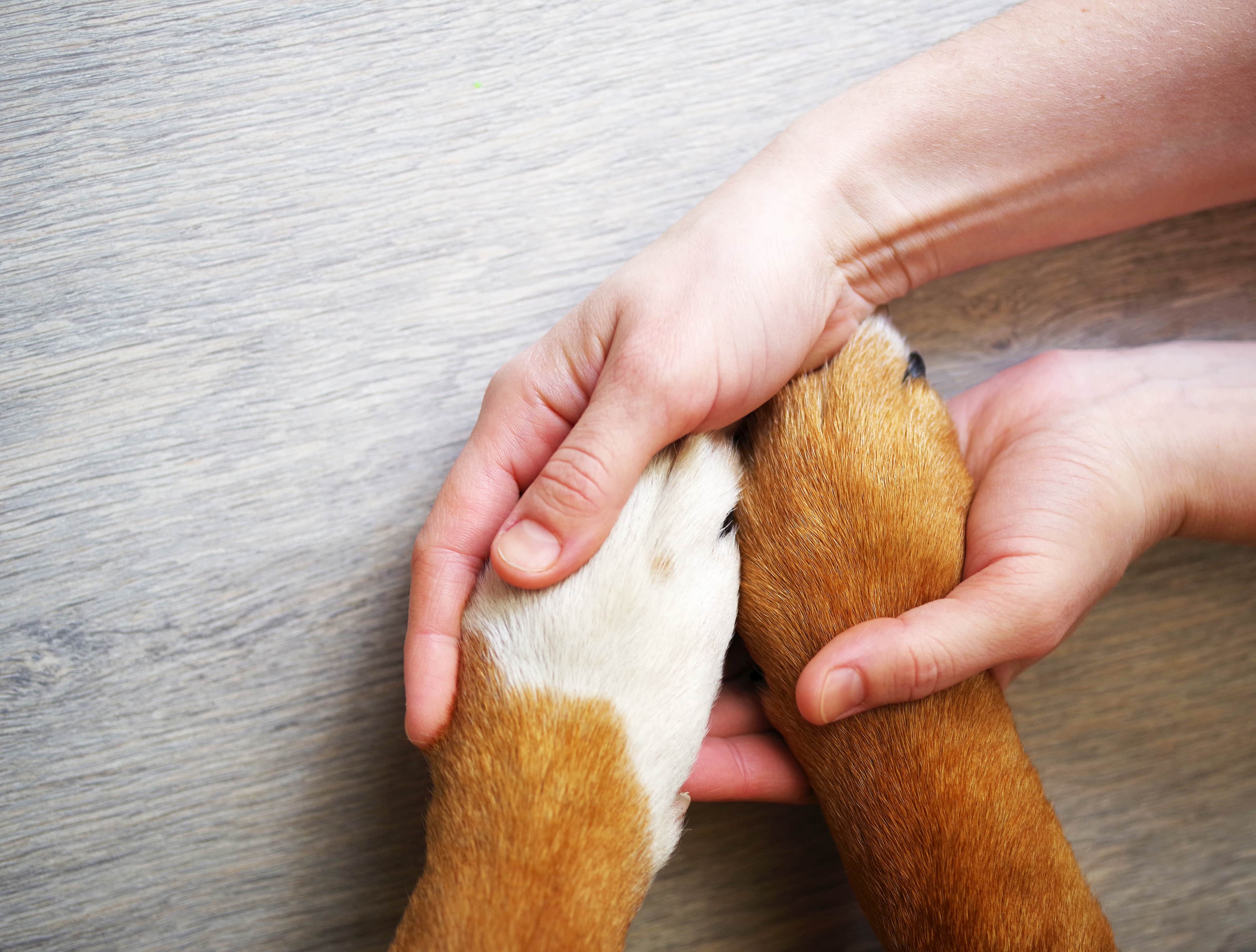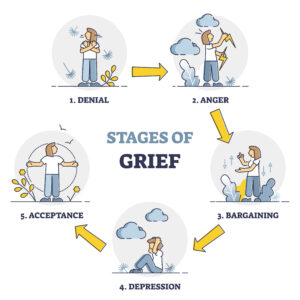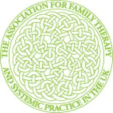What is Grief?
Grief stands as one of the most profound and trying encounters we encounter as human beings. It possesses the power to profoundly shake us, ultimately reshaping our very core in ways that are intricate and difficult to fathom. Given the complexity and diversity within the human species, our responses are inherently distinct from one another. Despite commonalities in our grief stages, our individual experience of these stages is markedly unique.
Take, for instance, a family of siblings who undergo the loss of a mother. While one sibling might progress through the stages of grieving and ultimately find acceptance over two years, another might become immobilised within the “anger” phase for an extended duration, potentially spanning several years.
Amid emotional pain, there emerges a prospect for healing, an avenue for personal development, resilience, and heightened compassion. Over time, we can reach a juncture that offers a sense of relief, whilst recognising that the passage of time plays a significant role in this process.

What Are The Stages Of Grief?
Despite death being an indisputable certainty, open discussion of it remains limited. Death and the subsequent experiences of grief are often considered taboo subjects within modern society. Think of your personal interactions, how have you navigated conversations about grief or the individuals you have mourned?
The book “Staring at the Sun” by Irvin D. Yalom delves into the human experience of mortality, exploring how our awareness of death influences our lives. Yalom examines the existential anxiety that arises from the inevitability of death, offering insights into how confronting our mortality can lead to a deeper appreciation of life. Loss can be tough to talk about, making it more challenging to process. Even when surrounded by others affected by the same loss, grief can be massively isolating.
The stages of grief, as outlined by psychiatrist Elisabeth Kübler-Ross, are as follows:
- Denial: You might experience disbelief or shock about the loss.
- Anger: You feel more or heightened frustration and irritation, often asking, “Why me?” or “Why us?”
- Bargaining: You might find yourself making deals or promises in hopes of reversing the loss. “If I could just go back to the moment when…”
- Depression: This is when you go into deep sadness and mourning.
- Acceptance: Processed grief leads to you coming to terms with the reality of your loss.
This is not an exhaustive list of the emotional stages experienced during grief, nor are these stages linear. However, it can be useful to identify and maintain an awareness of where in your grieving journey you are, and how this is impacting you.
Navigating Healing Through Bereavement
During the bereavement journey, it’s worth considering the steps you can take to provide solace and support for yourself. One particularly impactful approach is the creation of rituals, which hold profound significance for numerous people traversing the process of bereavement.
Heartfelt rituals create a tangible avenue for the expression of emotions while also serving as anchors within emotional turmoil. These rituals offer both comfort and structure, whether through lighting a candle, visits to cherished places, or the cultivation of quiet moments dedicated to reminiscing about your dear one.
An essential facet of nurturing the heart during the bereavement period involves the practice of self-care. Trying to prioritise regular exercise, maintaining a wholesome and balanced diet, and ensuring adequate rest collectively fortify our emotional resilience. Meditation and mindfulness exercises can act as effective tools for the management of grief. These practices enable us to remain rooted in the present, resisting the pull of future anxieties and past regrets.

Engaging with others, even in the simplest ways, catalyses healing. This could include reaching out to family and friends, participating in a grief support group, or consulting a bereavement counsellor. The act of sharing our experiences can dispel the isolating nature of grief, offering a comforting realisation that we are not alone. You can cultivate strength and connection through this collective vulnerability by lending an ear to others’ narratives and sharing your own.
You may also wish to consider channelling your grief into a purposeful pursuit. This might manifest through creative expression, such as writing or painting, or in the form of benevolent actions like volunteering or dedicating time to a cause cherished by your departed loved one. Through such endeavours, their memory lives on, and your life gains renewed purpose and direction.
How Counselling Provides Support During Bereavement
Counselling offers a secure space for individuals grappling with the complexities of grief. Through empathetic listening and effective therapeutic approaches, our team at Leone Centre gently assists individuals in openly expressing their emotions, thus facilitating the grieving process. Our counsellors are here to help you navigate feelings of being overwhelmed. By sharing your thoughts in counselling sessions, you can begin to acknowledge and process the reality of your loss, marking an important initial step towards healing.
Grief counselling also helps you understand and navigate the intricate stages of grief, enabling you to recognise and accept them as integral to your personal grieving journey. Additionally, it assists you in finding healthy avenues to cope with the pain and work through your emotions.
In essence, counselling supports you in processing grief and guides you in finding meaning and optimism amidst the experience of loss. This journey leads to a place of increased resilience and a sphere of healing and personal growth.
How Bereavement Changes Your Life
A final note is to acknowledge that moving forward doesn’t mean forgetting. Our loved ones live on in our memories, the lessons they taught us, and the love they shared. Keeping their memory alive is not an act of dwelling in the past but rather a celebration of their life and its impact on ours moving forward.
Bereavement is a profound, life-changing experience. It’s a journey filled with sadness, loneliness, and a longing that never entirely disappears. Yet, in this journey, there’s also an opportunity for growth, compassion, and a deepened understanding of the human experience.
Grief teaches us to appreciate life’s transient beauty, love more deeply, and nurture our hearts.
In the face of loss, you can transform your grief into a testament of love and nurture your heart to find a path of healing and wholeness.
































